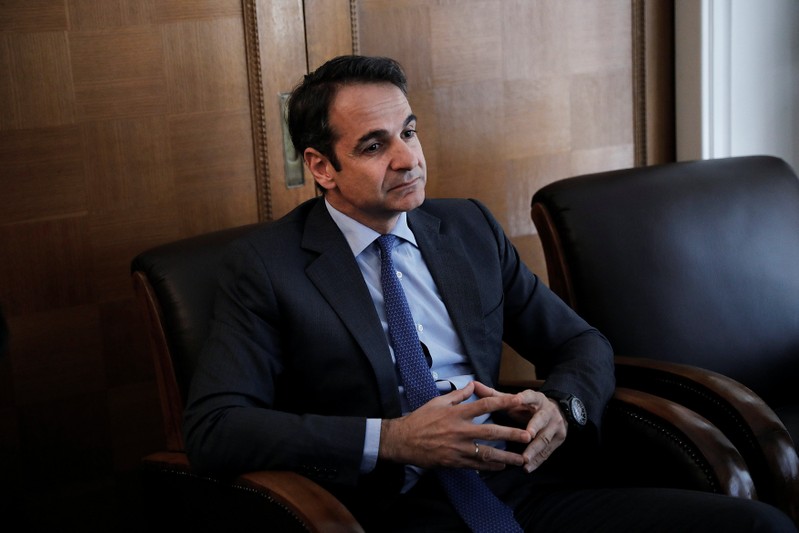
Main opposition conservative New Democracy party leader Kyriakos Mitsotakis meets with journalists of the Foreign Press Association of Greece in Athens, Greece, April 12, 2018. REUTERS/Alkis Konstantinidis
April 12, 2018
ATHENS (Reuters) – Greece’s conservative political opposition will not back a deal to settle a decades-old row with Macedonia over its name unless the ex-Yugoslav republic changes its constitution, its leader said on Thursday.
Athens and Skopje are negotiating to settle a dispute that has kept Macedonia from joining NATO and the European Union. Greece believes the name “Macedonia” implies a territorial claim over its northern region, which uses the same name.
“We will express our strong disagreement in parliament if and when such an accord comes,” New Democracy leader Kyriakos Mitsotakis, whose party leads the country’s leftist-led government in opinion polls, told the foreign press association.
“A constitutional review (by Skopje) is a necessary precondition for an accord,” he said.
The changes New Democracy wants would affect passages in the Macedonian constitution that refer to nationality, language and other articles. Macedonia so far has refused to consider any such changes. And in any case the Greek government can pass any agreement without the help of New Democracy.
Hundreds of thousands of Greeks rallied in the northern city of Thessaloniki and in Athens earlier this year to protest against the use of the name “Macedonia” in any solution to the row.
Mitsotakis accused the government of conducting “secret diplomacy” and then briefing political parties in the opposition, saying its tactics are dividing Greeks.
Talks between the two states have been inconclusive since 1991, when Macedonia withdrew from former Yugoslavia. It was admitted into the United Nations in 1993 under the name Former Yugoslav Republic of Macedonia, sometimes referred to as FYROM.
(Reporting by George Georgiopoulos in Athens, additional reporting by Kole Casule in Skopje, editing by Larry King)

